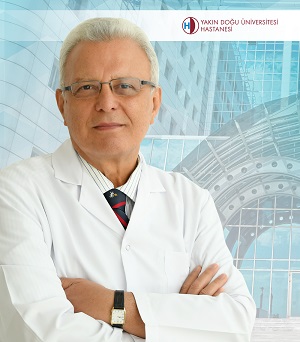
Near East University Hospital Head of Neurology Department Prof. Dr. Mehmet Özmenoğlu, drawing attention to excessive and unconscious drug use due to headache, emphasized that headache due to overuse of drugs is one of the most common clinical manifestations today.
“In patients with headache and mostly long-term resistant migraine; Intense and unconscious use of painkillers can cause pain in itself,” saying Prof. Dr. Mehmet Özmenoğlu emphasized; “Due to the frequency of pain in patients with chronic migraine, headache occurs due to unconscious drug use. Such pains occur due to migraine drugs used more than 8 days a month, and painkillers taken more than 15 days a month”. “Be careful when using a pain reliever or a specific migraine medication,” said Prof. Dr. Özmenoğlu and warned, “Otherwise, patients may be affected by drug side effects, not migraine or headache.”

Most common cause of headache: Migraine
Referring to the situations that cause headaches, Prof. Dr. Mehmet Özmenoğlu said, “We can simply divide the headaches into two groups as primary (primary) and secondary (secondary). 90% of patients with headache are in the primary headache group. The pain in 1 to 5 percent of the 10 percent group of patients with secondary headaches is due to a serious cause.” Emphasizing that this classification provides great convenience in terms of diagnosis, examination and treatment, Prof. Dr. Mehmet Özmenoğlu said, “Primary headaches are recurrent, similar in character, well-recognized pains by the patient. They are not life-threatening and can usually be controlled through appropriate treatment and advice. Secondary headaches are a clinical picture that can be life-threatening due to another underlying cause or disease, therefore requires urgent further examination and treatment, and the patient should be kept under observation until the diagnosis is made. Migraine is the most popular and the most common type of headache among primary headaches. Migraine, which affects about 15% of the world’s population, is clinically divided into three subgroups: simple migraine, migraine with precursor (aura) and chronic migraine (lasting longer than 3 months).
Painkillers are not helpful after a migraine attack starts.
Prof. Dr. Özmenoğlu reminds that migraine is not just a type of headache, but has features that affect the entire systemic structure. Prof. Dr. Özmenoğlu said, “The onset of pain in migraine attacks generally starts as mild and intensifies. However, it can also start very severely. If the headache is too severe, vomiting may be added to the effects. The headache is sometimes throbbing, pulsating, lasting 4-72 hours, sometimes moderate, sometimes very severe. Pain is felt unilaterally in 60% of patients. The pain may change sides during an attack or in different attacks, may involve any part of the head, and may spread to the face. Neck pain accompanies migraine attacks in 75 percent of patients. Painkillers are useful before the headache starts, painkillers taken after the pain starts do not have much benefit.”